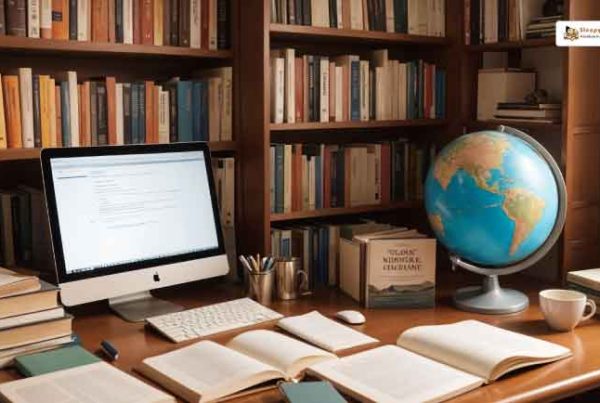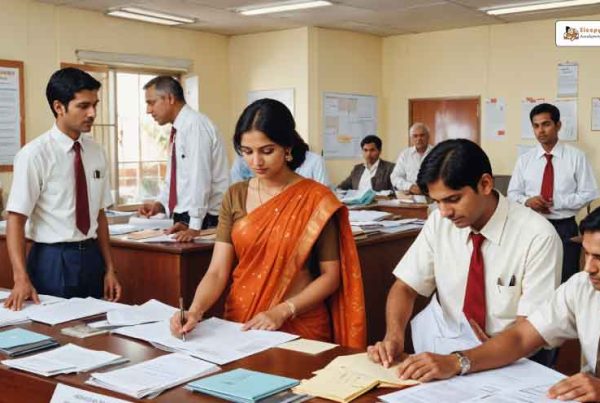Transitioning from an engineering background to a career in the Indian Administrative Services (IAS) can be a challenging yet rewarding journey. Technical graduates possess unique skills and perspectives that can be leveraged to excel in IAS preparation. This article explores strategies and techniques for engineering students to effectively navigate this transition, focusing on integrating technical knowledge with the IAS syllabus, managing time efficiently, and utilizing interdisciplinary learning approaches.
Key Takeaways
- Engineering graduates can integrate their technical knowledge with the IAS syllabus to gain a deeper understanding of both fields.
- Effective time management and prioritization are crucial for balancing engineering coursework with IAS preparation.
- Interdisciplinary learning, including engaging with non-technical subjects, can provide a well-rounded approach to IAS exam preparation.
- Problem-solving and analytical skills honed through engineering studies are advantageous for tackling IAS exam sections.
- Choosing between IAS and IES requires a clear understanding of career goals, exam structures, and professional aspirations.
Leveraging Technical Skills for IAS Preparation
Integrating Engineering Concepts with IAS Syllabus
Engineering graduates possess a unique advantage when preparing for the IAS exam due to their strong analytical and problem-solving skills. These abilities, developed through rigorous engineering studies, can be effectively applied to the challenging concepts in the IAS syllabus. Finding interdisciplinary connections between engineering principles and real-world issues, such as the environmental impact of engineering projects, can provide a comprehensive perspective essential for IAS preparation.
Applying Analytical Skills to IAS Exam Sections
The problem-solving skills honed through engineering studies are particularly beneficial for tackling the analytical and logical reasoning sections of the IAS exam. Engaging in group discussions or study groups with peers from diverse backgrounds can offer varied perspectives on current affairs and governance issues. This collaborative approach can enhance understanding and retention of complex topics.
Utilizing Engineering Resources for IAS Study
Engineering students have access to a wealth of resources, including technical journals, research papers, and academic databases. Leveraging these resources can significantly enhance IAS preparation. Platforms like Sleepy Classes offer expert-led insights and interactive learning experiences, making it easier to grasp difficult concepts and stay ahead in the competitive exam environment.
Leveraging online resources can significantly enhance your preparation. Platforms like Sleepy Classes offer expert-led insights and interactive learning experiences, making it easier to grasp difficult concepts and stay ahead in the competitive exam environment.
Time Management Strategies for Engineering Students
Balancing the demands of engineering coursework with IAS preparation requires strategic time management. Creating a study schedule is essential to ensure that both technical and general studies are covered comprehensively. By allocating specific time slots for each subject, students can maintain a balanced approach to their studies. Utilizing tools like time-blocking and setting clear priorities can significantly enhance productivity.
Efficient scheduling techniques are vital for managing time effectively. Engineering students can benefit from flexible study plans that allow them to access learning materials at their convenience. Regularly evaluating and adjusting the study schedule based on individual progress and challenges can help in staying organized and focused.
Prioritizing study sessions is crucial for maximizing productivity. By identifying the most important tasks and focusing on them first, students can ensure that they are making the best use of their time. This approach helps in balancing the demands of coursework and IAS preparation effectively.
Good time management techniques can help you balance the demands of college, career, and life.
Interdisciplinary Learning Approaches
Connecting Engineering with Real-World Issues
Integrating engineering concepts with real-world problems enhances your analytical abilities and broadens your understanding of the socio-economic and political landscape. This approach allows you to consider various angles, such as historical contexts and economic implications, making your preparation for the IAS exam more comprehensive.
Engaging in Non-Technical Subjects
Engineering students should not shy away from non-technical subjects. Engaging in subjects like history, geography, and political science can provide a well-rounded perspective. This multidimensional approach to learning is highly valuable in the IAS examination, where the assessment goes beyond rote memorization.
Participating in Internships and Workshops
Participating in internships and workshops can offer practical experience and a deeper understanding of real-world issues. These experiences can be invaluable, providing insights that are not available through traditional study methods.
By incorporating personalized and experiential learning, interdisciplinary approaches, and community engagement, you can effectively address complex challenges in your IAS preparation.
Benefits of an Engineering Background in IAS
Problem-Solving Skills
Engineering students excel in problem-solving, a skill that is crucial for the IAS exam. Their ability to break down complex issues into manageable parts helps them tackle the analytical and logical reasoning sections effectively. This skill is honed through years of rigorous training in engineering principles.
Analytical Mindset
An engineering background fosters a strong analytical mindset. This is beneficial when dealing with the vast and diverse IAS syllabus. Engineers are trained to think critically and analyze data, which aids in understanding and interpreting various subjects covered in the exam.
Handling Complex Subject Matter
Engineering students are accustomed to dealing with complex subject matter. This experience makes them well-equipped to handle the extensive material covered in the IAS curriculum. Their familiarity with technical subjects allows them to integrate this knowledge into their preparation strategy, giving them a unique edge over other candidates.
Many IAS officers with engineering backgrounds have successfully navigated the transition, proving that individual success depends on your dedication, learning agility, and overall preparation for the UPSC exam.
Choosing Between IAS and IES
When deciding between IAS and IES, it’s essential to understand your career goals. IAS officers are involved in administrative roles, policy formulation, and implementation, while IES officers focus on technical and engineering functions within government departments. Your choice should align with your long-term professional aspirations and interests.
The exam structures for IAS and IES are quite different. The IAS exam, conducted by UPSC, includes three stages: Prelims, Mains, and an Interview. On the other hand, the IES exam also has a written examination and a personal interview, but the written part includes both objective and subjective sections based on specific engineering fields. Understanding these differences can help you prepare more effectively.
| Exam | Stages | Focus |
|---|---|---|
| IAS | Prelims, Mains, Interview | General Studies, Aptitude, and Optional Subjects |
| IES | Written Exam, Interview | Engineering Discipline, General Studies |
Consider what you want to achieve in your career. If you are passionate about public administration and policy-making, IAS might be the right choice. However, if you wish to leverage your technical expertise to address the nation’s needs, IES could be more suitable. Deliberate and thoughtful consideration is crucial before making significant decisions.
It is incorrect to say that the salary of the IAS officers are less than the engineering jobs which is around Rs 3,00,000 per annum. Let me give you a correct perspective: both IAS and IES offer competitive salaries and benefits, but the roles and responsibilities differ significantly.
Effective Study Techniques for IAS Aspirants
Group Discussions and Study Groups
Engaging in group discussions and study groups can significantly enhance your understanding of complex topics. These sessions provide a platform to exchange ideas, clarify doubts, and gain new perspectives. Collaborative learning often leads to deeper insights and better retention of information.
Comprehensive Study Plans
Creating a detailed study schedule is crucial for IAS preparation. Allocate specific time slots for different subjects, ensuring a balanced and comprehensive coverage of the syllabus. Time management tools like time-blocking can aid in efficient utilization of time.
Leveraging Academic Databases
Utilize academic databases and technical journals to access a wealth of information. These resources can provide valuable insights and help you stay updated with current affairs. Regularly practicing with mock tests and previous years’ papers can also be highly beneficial.
Effective study techniques include creating a detailed study schedule, integrating current affairs with your static syllabus, and regularly practicing with mock tests.
Success Stories of Engineers Turned IAS Officers
Inspiring Journeys
Meet Priya, the daughter of an esteemed IPS officer, whose journey from a mechanical engineering graduate to cracking the UPSC exam without coaching is truly remarkable. Her story is a testament to the power of determination and self-study.
Lessons Learned
One key lesson from Priya’s journey is the importance of leveraging one’s technical background. She utilized her engineering problem-solving skills to tackle the complex IAS syllabus effectively. Her analytical mindset was a significant asset in understanding and integrating diverse subjects.
Advice for Aspiring Candidates
For those aspiring to follow in Priya’s footsteps, here are some tips:
- Self-Study: Priya’s success underscores the value of disciplined self-study. Create a structured study plan and stick to it.
- Leverage Technical Skills: Use your engineering background to approach the IAS syllabus analytically.
- Stay Motivated: Keep your end goal in sight and stay motivated throughout your preparation journey.
The journey from engineering to IAS is challenging but achievable with the right mindset and strategies. Priya’s story is a beacon of hope for many aspiring candidates.
Discover the inspiring journeys of engineers who have successfully transitioned to IAS officers. Their stories are a testament to dedication, hard work, and the right guidance. If you’re aiming to achieve similar success, explore our comprehensive UPSC courses designed to help you excel. Join the ranks of our successful candidates and start your IAS journey today!
Conclusion
Transitioning from an engineering background to a career in the Indian Administrative Services (IAS) is a challenging yet rewarding journey. The analytical and problem-solving skills honed during engineering studies provide a strong foundation for tackling the diverse and complex topics covered in the IAS syllabus. By integrating technical expertise with a comprehensive understanding of governance, policy, and social issues, engineering graduates can bring a unique perspective to the civil services. The experiences shared by successful candidates like Shraddha Ganjoo, Ayush Raina, Dharminder Singh, and others highlight the importance of strategic preparation, continuous learning, and leveraging one’s technical background to excel in the IAS exam. Ultimately, with dedication, effective time management, and a well-rounded approach to learning, engineering graduates can successfully navigate the transition to becoming esteemed IAS officers.
Frequently Asked Questions
How can engineering students integrate their technical skills with the IAS syllabus?
Engineering students can integrate their technical skills with the IAS syllabus by finding interdisciplinary connections between engineering concepts and real-world issues. For example, understanding the environmental impact of engineering projects or the technological implications of government policies can provide a holistic perspective essential for IAS exam preparation.
What are some effective time management strategies for balancing engineering coursework and IAS preparation?
Effective time management strategies include creating a well-structured schedule that prioritizes both engineering coursework and IAS preparation. Techniques such as setting specific study times, breaking tasks into manageable chunks, and using tools like planners or digital calendars can help in balancing both commitments.
How can an engineering background benefit IAS aspirants?
An engineering background benefits IAS aspirants by providing strong analytical and problem-solving skills, an analytical mindset, and the ability to handle complex subject matter. These skills can be effectively applied to tackle the challenging concepts presented in the IAS syllabus.
What are the differences between IAS and IES exams?
IAS (Indian Administrative Service) and IES (Indian Engineering Service) exams differ in their eligibility criteria, exam structure, and career focus. IAS is open to graduates from any discipline and focuses on public administration, while IES is tailored for engineering graduates and focuses on technical projects. The choice between the two depends on individual career goals and professional aspirations.
Are group discussions and study groups beneficial for IAS preparation?
Yes, group discussions and study groups are beneficial for IAS preparation as they provide diverse perspectives on current affairs and governance issues. Engaging with like-minded individuals from different disciplines can enhance understanding and foster collaborative learning.
Can engineering resources be utilized for IAS study?
Yes, engineering resources such as technical journals, research papers, and academic databases can serve as valuable sources of information for IAS preparation. Leveraging these resources can provide in-depth knowledge and a unique perspective on various topics covered in the IAS syllabus.




